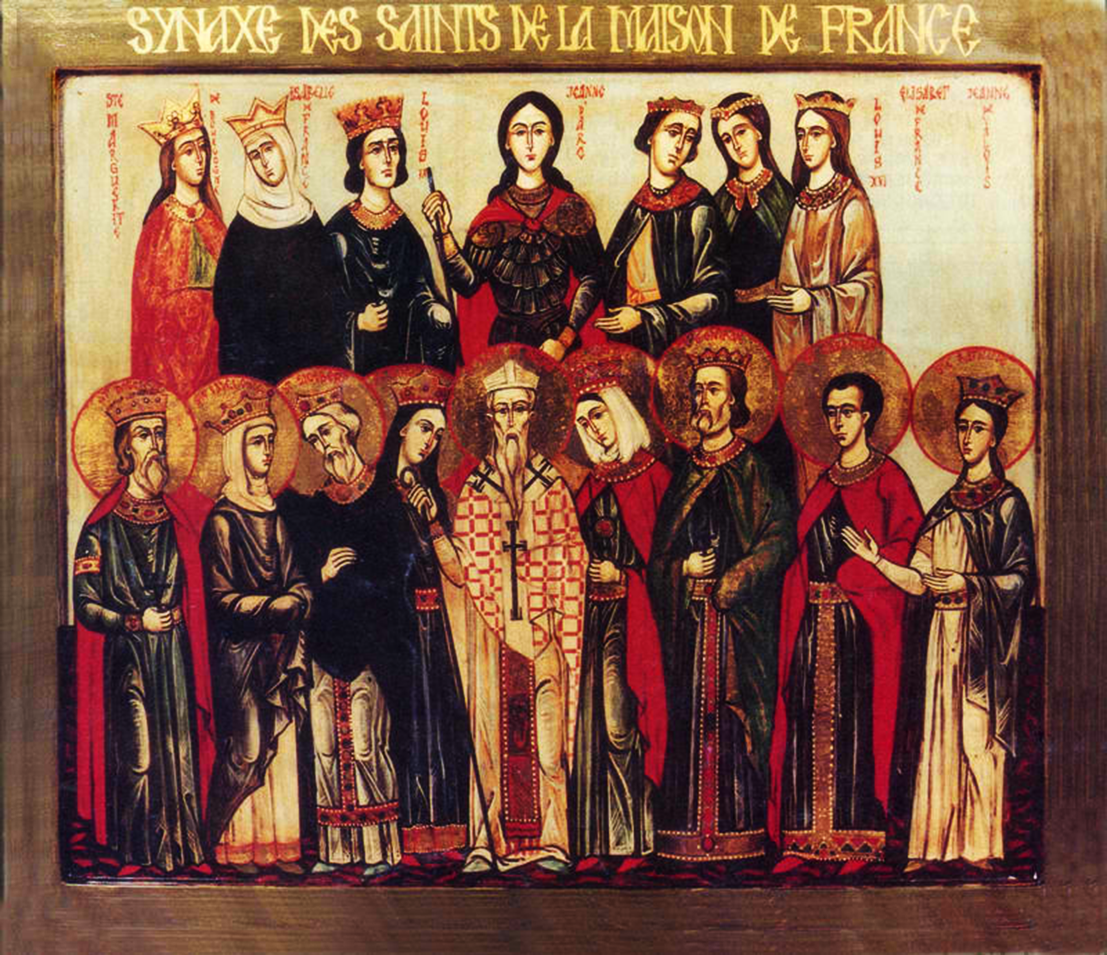Orthodox Saints of the Pre-Schism See of Rome

5th December
BASILISSA, an Abbess of Oehren Abbey near Trier who reposed circa 780.
BASSUS, the first Bishop of Nice, he was martyred during the Decian Persecution (250–251) by being impaled foot to head with long nails, and being burnt with red-hot pokers.
CAWRDAF, the son and successor of Caradog as Chieftain of Brecknock and Hereford. In his later years, he renounced his worldly life and received monastic tonsure from St. Illtyd (6th November), spending the rest of his life as a monk. St. Cawrdaf reposed circa 560.
CRISPINA, a wealthy matron in Thebeste in Numidia, Africa Proconsularis (present-day Algeria), who, in 304, was arrested and tried for professing Christianity and refusing to offer pagan sacrifices, and ultimately beheaded.
DALMATIUS, a missionary in Gaul who for one year served as Bishop of Pavia in Lombardy before being martyred 303.
FREMINUS (FIRMINUS), the seventh Bishop of Verdun (486–502) in present-day France.
GERBOLD, a monk who founded the abbey of Livray in Normandy, and later was consecrated fourteenth Bishop of Bayeux. St. Gerbold reposed circa 690.
JOHN GRADENIGO, a Venetian nobleman who received monastic tonsure at Cuxa in the Catalonia. St. John later went to Monte Cassino where he lived as a hermit nearby, and reposed in 1025.
JULIUS, POTAMIA, CRISPIN, FELIX, GRATUS, and COMPANIONS, twelve martyrs at Thagura, Numidia, Africa Proconsularis (present-day Algeria), during the Diocletianic Persecution (303–313).
JUSTINIAN (IESTIN) , a native of Brittany who went to live as a hermit on the Isle of Ramsey off the coast of south Wales. St. David (1st March) was so struck by St. Justinian’s holiness that it is said St. David made him spiritual father for his monks and himself. St. Justinian was murdered by bandits (some sources say monks who thought his rule too strict) circa 560, and subsequently venerated as a martyr. St. David had his relics translated to his cathedral, where they remain to this day in the Holy Trinity Chapel there.
NICETIUS, a monk and then Abbot at Limoges, consecrated the twenty-sixth Bishop of Trier in 532. The last of the Gallo-Roman bishops, he worked to revitalise the Faith in an area which had grown indifferent to it, restored discipline and put an end to clerical vice. He fought heresy, in particular Monophysitism. St. Nicetius excommunicated Clotaire I, King of the Franks (r. 551–558) for immorality, resulting in St. Nicetius' exile. St. Nicetius reposed in 566.
PELINUS, a Bishop of Brindsi, who during the persecutions by Emperor Julian the Apostate (r. 361–363), prayed in front of a pagan temple, in Confinium (near present-day Corfinio in the Abruzzo), which subsequently collapsed. He was beaten to death by pagan priests, 361.
SIGIRANUS (CYRAN, SIRAN, SIGRAM), son of the Count of Bourges (central France), and a member of the court of Clotaire II, King of the Franks (r. 613–629), St. Sigiranus felt a call to religious life, he left the court and was ordained in Tours in 625. He served as Archdeacon of Tours for a while and later made a pilgrimage to Rome. St. Sigiranus was the founder of both Saint-Pierre de Longoret and Méobecq Abbeys in the diocese of Bourges. He spent that last years of his life as Abbot of Saint-Pierre de Longoret, reposing in 655.
Prior to the Schism the Patriarchate of Rome was Orthodox, and fully in communion with the Orthodox Church. As Saint John of Shanghai and San Francisco +1966 said “The West was Orthodox for a thousand years, and her venerable Liturgy is far older than any of her heresies”.
Details of British Saints excerpted from Orthodox Saints of the British Isles.
Details of continental saints from these sources.
In many cases there are several spelling versions of the names of saints from the British Isles. I use the Oxford Dictionary of National Biography version as the primary version with the more prevalent version in parenthesis e.g. Ceadda (Chad) of Lichfield.
